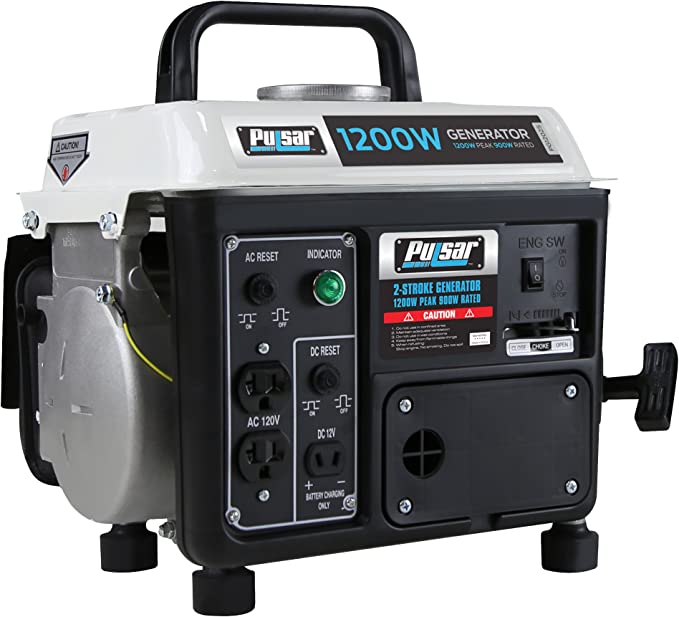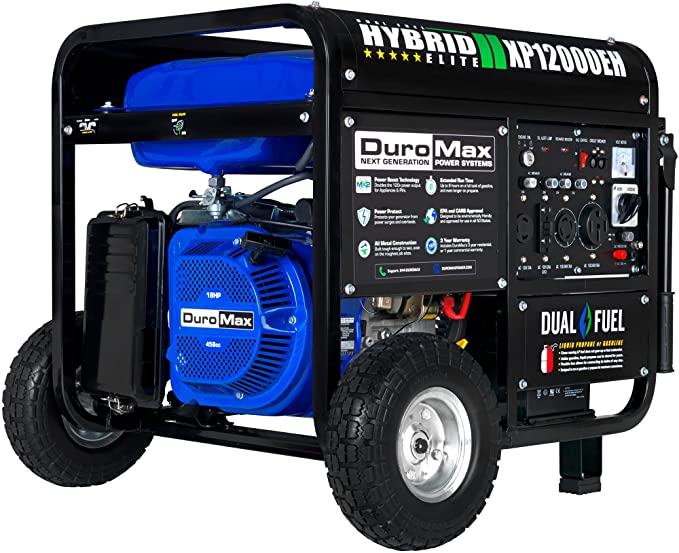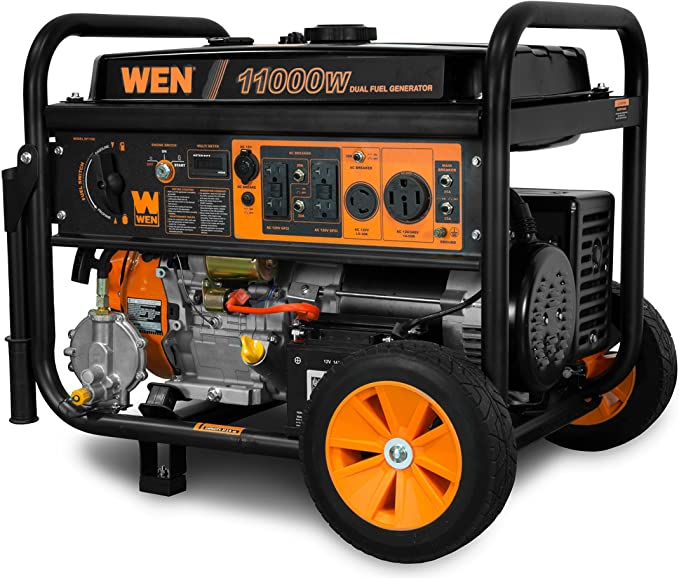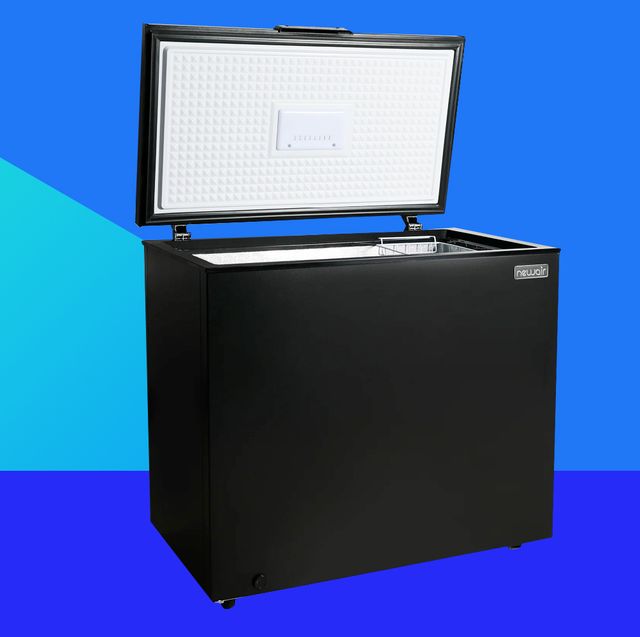Can A Portable Generator Power A Freezer?
It can be very nerve-racking waiting for the power to come back on when there is a power outage. Proactive action needs to be taken to prevent food from going bad in your freezer.
We consulted with the experts to find out how a portable generator can be used to power your freezer during a power failure and give you peace of mind.
If you have a portable generator, it will run your freezer even if there is a power outage, and it will save you money.
Depending on the size of your freezer and the amount of power your generator has, you should use a generator that can run your freezer and several other electrical gadgets at the same time.
The best generator to run your freezer is one that has several important qualities that shouldn’t be overlooked in the selection process.
Continue reading to find out how to identify a portable generator for your freezer.
Table of Contents
What Size Generator Is It Needed To Run A Freezer?
The majority of homes have a fridge as well as a freezer. There is a 2000-watt portable generator that can run both at the same time.
If you only have a freezer, then it would work well.
If you want to run your freezer, fridge, and other appliances like a TV at the same time, you will need a generator with a much higher wattage.
Is It Possible That A 2000 Watt Generator Run A Freezer?
A 2000-watt generator is sufficient to power your standard freezer and fridge. If you want to run other appliances at the same time as your freezer, this may not be enough.
If you want to use your freezer and other appliances of your choice, you will need a generator with a higher wattage than 2000 watts.
It is important to prevent damage to your generator as well as the other electrical appliances.

Things To Consider When Choosing a Generator For Your Freezer
If you need a particular generator to power your freezer, you have to identify one based on the size and watt of the freezer.
If you want to power more than one appliance with your generator, there is a way to do that.
It’s a good idea to get a generator that can run all your appliances without causing any problems.
Features
There’s a portable generator that’s convenient when there’s a power failure.
If you are on a budget, it is an excellent choice because it does not require any complex installations and can easily be moved around.
The qualities that you should look for in a portable generator are listed below.
Low Noise
When there is power, you still want a comfortable home just as much. As you go about your normal duties, low noise generators will not make you uncomfortable.
Energy Efficient
The advantage of a dual fuel generator is that it can run much longer using propane than it would with gasoline.
If you use gasoline, your generator can run up to 16 hours, but if you use propane, it can run between 150 and 200 hours.
Dual-Fuel
This is a generator that is powered by either gasoline or propane.
It’s an excellent choice for homeowners, as one can switch between fuels depending on their availability, which will cause no problems to the generator.
The prices of the fuel are different for different reasons. If you need to use a generator, you can choose between the cheaper fuel or the more expensive propane.
Wattage Of Your Freezer
If your generator has a watt allowance higher than the watt utilization of your freezer, it is very safe to run your freezer on a generator.
The starting wattage and running wattage are the two main numbers that should be considered when choosing a generator.
The starting wattage for your freezer is the initial amount of power needed to operate it when it is switched on while running wattage is the power needed to run your freezer continuously after it starts operating.
A standard fridge freezer needs a starting wattage of 1200 watts and 800 watts to continuously run it efficiently. This means that you will need a generator with a 2000 watt capacity.
There are different wattage requirements for the chest freezers. A small chest freezer needs an 850-watt start and a 100-watt run to operate.
The generator is 2000 watts and can power the size of a chest freezer. You can check your freezer manual for starting and running wattage information as they differ from one another.
A general rule of thumb is to always use a generator that surpasses the recommended wattage for your freezer. Potential damages to your appliance can be prevented with this.

The Amount of Power Your Generator Can Hold To Run Several Electrical Appliances Simultaneously
When there is a power cut, you want to make sure your freezer is still running, but you may also need to use other appliances like a laptop or TV.
If you need a generator that can power your freezer and other electrical gadgets at the same time, you will need one.
You have to calculate the total wattage of all the appliances that your generator needs to hold. The starting and running wattage for each appliance is as follows:
| Appliance | Starting Wattage | Running Wattage |
| Freezer | 1280 | 400 |
| Water pump | 1100 | 300 |
| TV | 0 | 200 |
| Lights | 0 | 60 |
| Laptop | 0 | 120 |
Add to the running watts of the remaining appliances if you pick the Freezer with the highest wattage of 1280 watt.
1960 watt is the number of the 1280+400+300+200+60+ 120 units. You can use a 2000-watt generator if you choose to.
If you want to connect to your generator, you should start with your freezer.
All of the other appliances should be added one after another, starting with the one that has the highest wattage.
When two appliances are likely to start or surge at the same time, a different type of calculation is required.
Normally, the water pump and freezer would surge at the same time. Adding their starting wattages and adding the running wattage of the remaining appliances will give us 2760 watts.
A 2000-watt generator wouldn’t have enough power to run all the appliances, and a 2760-watt generator would be required.
Using a 2000-watt generator to run 2760 watts is a disaster. The generator will trip if it overloads, so it will not produce any power.
Safety Measures
Let’s say you have decided to use your portable generator. Before you use it, you need to observe the following safety guidelines.
Avoid Burns
If you touch a hot generator, it can burn you. Don’t even touch it until it has cooled down.
Prevent Fire Hazards
You can store your fuel in containers that are clearly labeled and in places that are away from your house. The fuel can be started by any small flame.
You should have a fire extinguisher near your generator, as well as where you store it. Don’t attempt to fuel your generator while it is running.
Before you refuel, turn off your generator and let it cool off. As a flame could ignite, be careful that fuel doesn’t pour on the hot engine parts.
Use The Correct Power Cords
Use the heavy-duty cords that are rated for outdoors with enough capacity to power your freezer.
Do Not Overload Your Generator
Damage to your appliances as well as the generator itself can be caused by overloading your generator.
You should only use a generator that has enough power to hold all the appliances you need to run.
Avoid Electrical Hazards
When using your generator, place it on a dry surface. Don’t touch the generator if you’re wet, it will cause electrical shock.
Plug your electrical gadgets directly into the generator.
If you want to make sure you don’t exceed the wattage of your generator, you could use an outdoor extension that holds enough wattage equal to the total number of appliances you’re going to power.
Make sure that your generator’s electrical cord is free of tears or cuts.
Plugging your generator into an electrical outlet is not the best way to provide power to your entire house. This is very dangerous and presents a high risk of injury.

Avoid Enclosed Or Partially Enclosed Spaces
If you have a generator inside your house, do not use it in the basement, garage, or crawl areas.
There are health problems and even death caused by carbon monoxide emissions from generators. If you have a generator, place it at least 10 to 20 feet away from the house.
How Many Watts Is Required To Run A Freezer?
The size, model, and age of your freezer can affect the number of Watts that run it.
A lower wattage is required for smaller freezers. The older models require more watts than the more modern models.
What Can You Power With A Tailgator Generator?
They are not available in the market right now. If you want to adequately power your freezer, you should choose a model that can do that.
There is a maximum starting power of 900 watts and running power of 700 watts for a Tailgator generator.
It wouldn’t be possible to run an average freezer in your home, as it would require a generator with a higher starting wattage.
Conclusion
If there is a power failure, your food can be ruined. Purchase a portable generator and use it as a backup when there is no power.
A durable, high-quality generator that is dual fuel, produces low noise, and provides power for a long time is the best bet.
To get the most suitable generator to power your freezer, it’s important to know the size and watt of your freezer.
If you want to run your freezer with other electrical appliances at the same time, make sure your generator has enough power to do it.
Proper safety guidelines need to be followed when using a generator to prevent injury to you and your family.
Damages to your electrical gadgets as well as your generator can be prevented.

Foodie and a passionate cook, I am here to share all of what I know about cooking, kitchen, and food prepping.
Follow me for delicious and healthy recipes.






